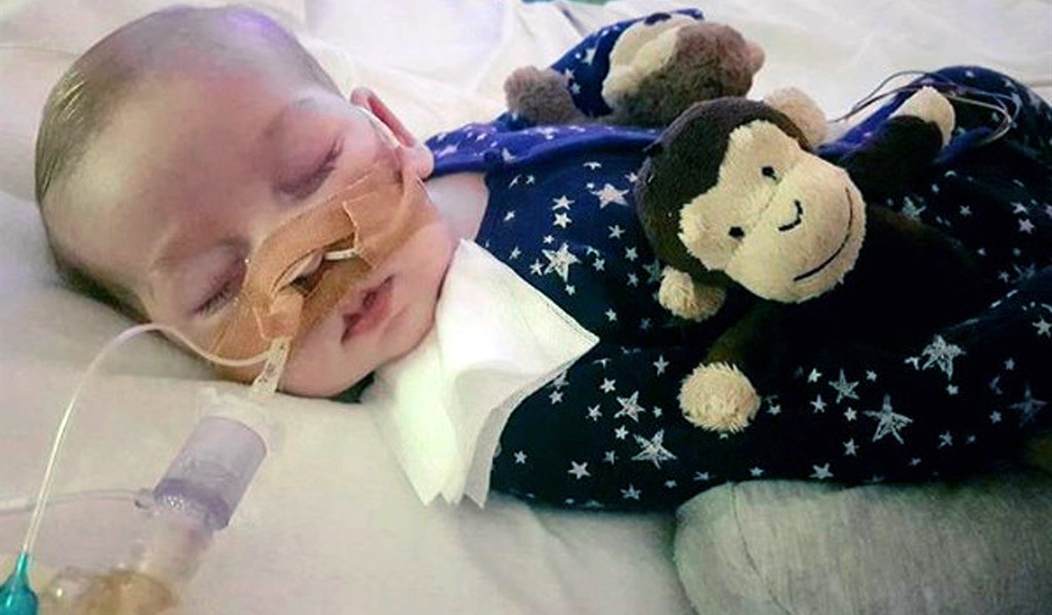Great news, with two caveats.
https://twitter.com/RepKevinYoder/status/887404289769058304
The amendment, introduced by Republican Jaime Herrera Beutler, passed the House Appropriations Committee unanimously. Caveat one: Obviously this precedent will be cited by families of other desperately ill children abroad in seeking admission to the U.S. for treatment. That doesn’t mean Congress has to make similar legal exceptions for them but it will force them to explain why little Charlie gets LPR status while other children don’t. Is it purely a matter of media attention or something else? Then again, Gard’s case is so unusual, with the hospital fighting his parents to let him die, that the number of families abroad who can claim they’re similarly situated may be very small.
Either way, special carve-outs for specific individuals is unusual in federal legislation. Maybe Congress should consider passing something broader, e.g., any child abroad in need of life-saving treatment who can’t receive it at home and has a U.S. hospital willing to provide it shall be granted a visa for one year. There’s no way immigration activists could twist that policy to extend it to people for whom it’s not intended, right?
Caveat two: This might not save little Charlie.
But legal sources said Charlie is the subject of a High Court order and it made no difference what passport he held.
And last Friday, the judge made it clear it would be illegal for Charlie to travel to America without his permission.
The parents’ barrister Grant Armstrong said the parents were of the view that legally it was up to the hospital to change its mind and allow Charlie to be transferred.
But Mr Justice Francis said the effect of the various rulings meant the court’s permission was required.
Any legal eagles on the other side of the pond know the consequences of Gard and his parents being granted LPR status here vis-a-vis the family’s right to take him to the U.S. for treatment? It may be the case under normal circumstances that that would grant the Gards the right to travel to the United States but these aren’t normal circumstances: As the Mail explains it, the question here is whether travel would cause “suffering” to the child, in which case the state can step in and prevent it whether or not Charlie has a right to reside at his destination. Don’t ask me how that squares with the hospital’s desire to remove him from life support, though. They can’t risk having him die on a plane en route for treatment that might save him because he … needs to die in the hospital instead? And don’t forget, a U.S. hospital has offered to spare the family the ordeal of traveling by bringing the experimental drug to London so that Charlie can be treated there. Evidently that’s been rejected too. Why?
The American doctor overseeing the experimental treatment that might help Gard was in London yesterday to try to persuade the British doctors treating him that there’s a chance the drug might help. He went at it with them for five hours, insisting there’s a 10 percent likelihood it’ll reduce the child’s muscle weakness. No dice: The doctors reportedly stayed put on their recommendation that life support be removed, with the hospital’s lawyer calling the American doctor’s prognosis “all very theoretical.” They seem intent on seeing this infant dead as soon as possible, whether because they fear the precedent it’ll set if the law forces them in this case to support a seemingly hopeless patient indefinitely or because they’re “experts” and the expert consensus must not be challenged by blind hope — even if that hope is itself backed by some medical opinion. Anyway, yesterday’s amendment at least gives British courts more of a reason to relent here than existed before.







Join the conversation as a VIP Member